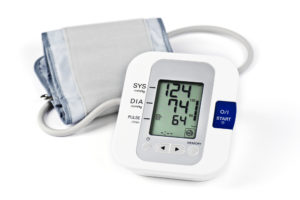CV Risk Research: Dr Rachel Baumber
Doctor Rachel Baumber, Research lead

Dr Rachel Baumber, consultant in anaesthesia at the Royal National Orthopaedic Hospital (RNOH), admits that she isn’t very good at saying no when presented with a challenge.
When Professor Tim Briggs Consultant Orthopaedic Surgeon at RNOH asked her if she would lead the Thalidomide Trust’s Cardio Vascular Risk research study she found it very hard to turn the offer down:-
“We still don’t know if the measurement of blood pressure is truly accurate,” she explains “so the opportunity to take a real world, clinical approach to comparing blood pressure taken in different parts of the body, during surgery, in thalidomide-affected and non-affected patients was a compelling one.
From Tim’s first approach it has taken almost two years to get the CV Risk study underway, from planning and Ethics Committee approval to data collection and we have taken readings from twenty non-thalidomide patients in phase one of the study.”
“We’re now moving on to phase two with Graham Kelly doing a great job in encouraging beneficiaries of the Thalidomide Trust, who are due to have surgery to participate,” Rachel explains,“We’ve already taken readings from one beneficiary and others are signing up across the country to take part in this ground-breaking research, so we’re confident we’ll get the amount of data we need. Our ultimate aim is to find out what can be considered as a ‘normal’ blood pressure reading in a person with short, or non-existent limbs, so that we can spot when it becomes too high or too low, and therefore, when that person is at risk. By taking blood pressure, arterially, during surgery we can work out whether the readings patients take routinely at home, in the calf or ankle, or have taken in the GPs surgery are an accurate representation of their blood pressure or not.”
“Blood pressure isn’t the only indicator of an increased risk of heart attack or stroke” Rachel says “controlling blood pressure is one crucial aspect in managing cardiovascular risk but it also includes detecting and managing diabetes and high cholesterol. But it’s pretty important that we understand how to interpret it properly. We hope to extend the study further to look at all aspects of cardiac risk in the near future, but that’s a huge undertaking.
As we get older our blood vessels get stiffer and this could also affect the accuracy of readings – people affected by thalidomide are all entering that older age group so we will be able to establish whether their readings are reducing in accuracy as they age.”

Rachel is pleased with how well the study has been supported so far but recognises there is still some way to go:-
“People are coming forward, and consultant anaesthetists and surgeons are very supportive of the research – which is fantastic,” she comments “but it will take us about three years to complete the research. Operations involving arterial lines are usually big ones – orthopaedic and abdominal surgery are where they are most used – so it will take time to gather data from enough patients, affected by thalidomide, undergoing major surgery. Going for surgery is stressful, and everyone’s blood pressure drops when they are under anaesthetic, so we can’t assess normal blood pressure; but we can get an idea of how accurate the measurements are.”
As the peri-operative research lead at RNOH Rachel is exploring what happens to people before and after surgery as well as during it – and how different factors affect their on-going recovery and health.
“I’m quite terrier-like and extremely passionate about research,” she laughs “I’m very good at nagging people to do things – just ask my husband!
Doing this research could help us make real strides in understanding blood pressure – and also in improving the process for CV Risk screening,” she says emphatically “and we hope to share our findings with the wider medical world in a peer review journal – making blood pressure monitoring more accurate and effective for the future.”
